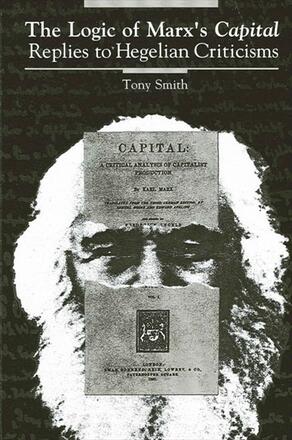
The Logic of Marx's Capital
Replies to Hegelian Criticisms
Alternative formats available from:
Description
Beginning with "value" and "commodity" at the start of Volume I in Marx's major work, and progressing step-by-step to the end of Volume III, Smith establishes in detail that Capital is a systematic theory of socio-economic categories ordered according to dialectical logic. At each stage in his analysis of the theory Smith makes Marx's arguments more accessible. He also considers in depth the objections to Marx's employment of dialectical logic that have been formulated by Hegelians (especially those presented in Klaus Hartmann's Die Marxsche Theorie). Smith presents a persuasive case against this whole range of Marx criticisms, many of which have also been proposed from non-Hegelian standpoints.
Tony Smith is Associate Professor of Philosophy at Iowa State University of Science and Technology.
Reviews
"Tony Smith has now written a book that conclusively demonstrates that Marx's commitment to Hegelian dialectic is much more thoroughgoing, fundamental, and central to Marx's thought than anyone had previously seen. He has done a brilliant job in demonstrating the Hegelian dialectical logic that structures Capital. No one had ever worked this out in such detail, with such rigor, and with such convincing arguments. This is thus a scholarly achievement of the highest order: Smith has produced a highly original, extremely well-written and argued, and important work that is sure to be cited and debated for decades to come." — Douglas Kellner, University of Texas at Austin
"I am most impressed by its originality and systematic character. There is nothing in the literature on Marxism that is anything like it, and responding in such detail to Hegelian criticisms proves to be a wonderfully enlightening approach to a lot that has been unclear about Marxism, especially its exposition. For anyone interested in Marxism, especially his dialectical method and economic theories, the book is extremely significant." — Bertell Ollman, New York University